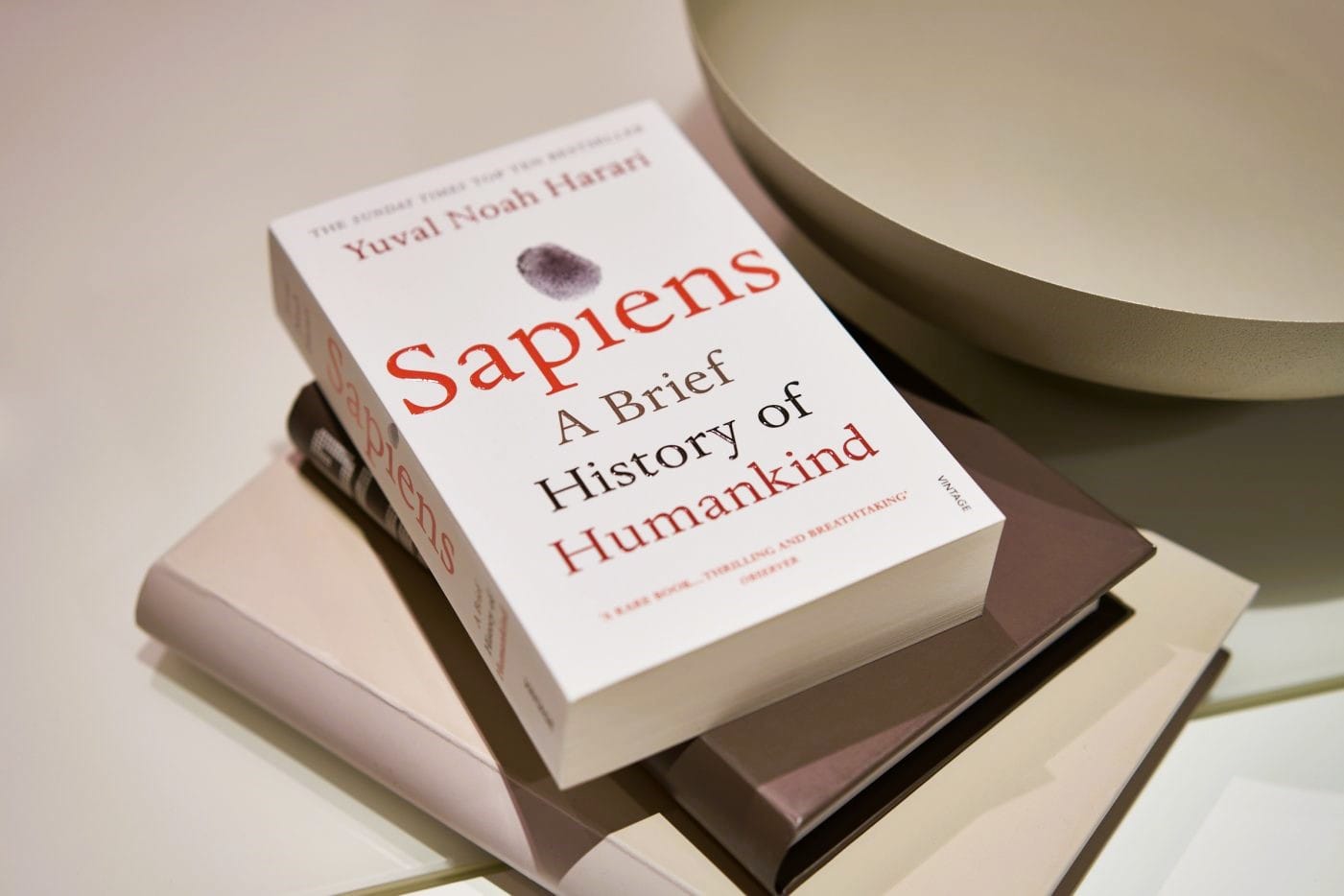Introduction to the Book : Sapiens: A Brief History of Humankind
“Sapiens: A Brief History of Humankind” by Yuval Noah Harari is an extraordinary exploration of human history, combining science, philosophy, and storytelling. It delves into how Homo sapiens evolved from insignificant primates into the most dominant species on Earth, shaping civilizations, cultures, and ideologies. This book isn’t just about history; it’s a profound reflection on humanity’s impact on the world and ourselves.
Who Should Read This Book? : Sapiens: A Brief History of Humankind
- Curious Learners: If you enjoy learning about evolution, anthropology, and history, this book is a must-read.
- Philosophy and Psychology Enthusiasts: The book examines deep questions about human consciousness, morality, and societal values.
- Professionals in Any Field: The book’s themes touch upon economics, politics, religion, and science, making it relevant to a wide audience.
- Anyone Concerned About Humanity’s Future: Harari not only looks at the past but also projects into the future, discussing artificial intelligence, biotechnology, and potential human extinction.
Key Highlights of the Book : Sapiens: A Brief History of Humankind
- Cognitive Revolution (70,000 years ago)
Harari begins by explaining how the emergence of language and abstract thinking set Homo sapiens apart from other species. Our ability to create shared myths (like religions, nations, and corporations) allowed us to cooperate in large groups.Interesting Insight: The concept of “fictive language” – the ability to believe in things that don’t physically exist, such as gods or money – is a cornerstone of human progress. - Agricultural Revolution (12,000 years ago)
Often labeled as humanity’s greatest fraud, the transition from foraging to farming led to permanent settlements and societal hierarchies. Harari challenges the notion that agriculture improved human life, arguing it brought inequality, disease, and overwork.Intriguing Question: Was the Agricultural Revolution a step forward, or did it trap humans in a cycle of labor and suffering? - Unification of Humankind
Harari explores how empires, religions, and trade connected vast populations. He examines the role of money as a universal system of trust and the rise of monotheistic religions in shaping global history.Fascinating Perspective: Money and religion, while intangible, are some of humanity’s most powerful tools for uniting and controlling societies. - Scientific Revolution (500 years ago)
Harari highlights how the scientific revolution reshaped human understanding of the universe. The pursuit of knowledge drove imperialism, capitalism, and technological innovation.Thought-Provoking Discussion: How the scientific method’s emphasis on ignorance (“we don’t know”) marked a radical shift from traditional belief systems. - Modern Challenges
The book ends by examining contemporary issues like capitalism, environmental destruction, and biotechnology. Harari raises ethical questions about the future of humanity as we engineer life itself.Chilling Prediction: The era of Homo sapiens may soon give way to a new species of engineered “superhumans.”
Why Is This Book Interesting? Sapiens: A Brief History of Humankind

- Thought-Provoking Ideas: Harari’s unconventional perspectives challenge widely accepted views about progress, civilization, and morality.
- Engaging Narrative: Despite its scholarly content, the book is accessible and filled with anecdotes, analogies, and humor.
- Broader Context: It connects history, biology, sociology, and philosophy in a way that offers a holistic understanding of human evolution and society.
Lessons and Takeaways : Sapiens: A Brief History of Humankind
- Humans Thrive on Collaboration
Our ability to cooperate in large numbers gave us an evolutionary edge, but it also created systems of oppression and exploitation. - Progress Is Not Always Beneficial
Technological and societal advancements come with consequences, such as environmental degradation and ethical dilemmas. - The Future Is Uncertain
As we harness technologies like artificial intelligence and genetic engineering, humanity must decide what kind of species it wants to become.
Who Will Love This Book? : Sapiens: A Brief History of Humankind
- History Buffs: It provides a fresh take on historical events and their significance.
- Philosophers and Thinkers: The book raises existential and ethical questions about human nature and destiny.
- Leaders and Innovators: Its insights on cooperation, innovation, and societal change are valuable for decision-making.
Final Verdict : Sapiens: A Brief History of Humankind
“Sapiens” is not just a history book; it’s a profound reflection on what it means to be human. Harari’s ability to connect the dots between the past, present, and future is unparalleled. Whether you’re a student, a professional, or simply a curious mind, this book offers valuable insights that will stay with you long after you’ve turned the last page.
Rating: ★★★★★
If you’d like more specific insights from the book, let me know!
Read : Review of Who Will Cry When You Die? by Robin Sharma : 1st & best




Your article helped me a lot, is there any more related content? Thanks!
Your article helped me a lot, is there any more related content? Thanks!
Your article helped me a lot, is there any more related content? Thanks!
You made certain good points there. I did a search on the topic and found most folks will agree with your blog.
Thank you for your shening. I am worried that I lack creative ideas. It is your enticle that makes me full of hope. Thank you. But, I have a question, can you help me?